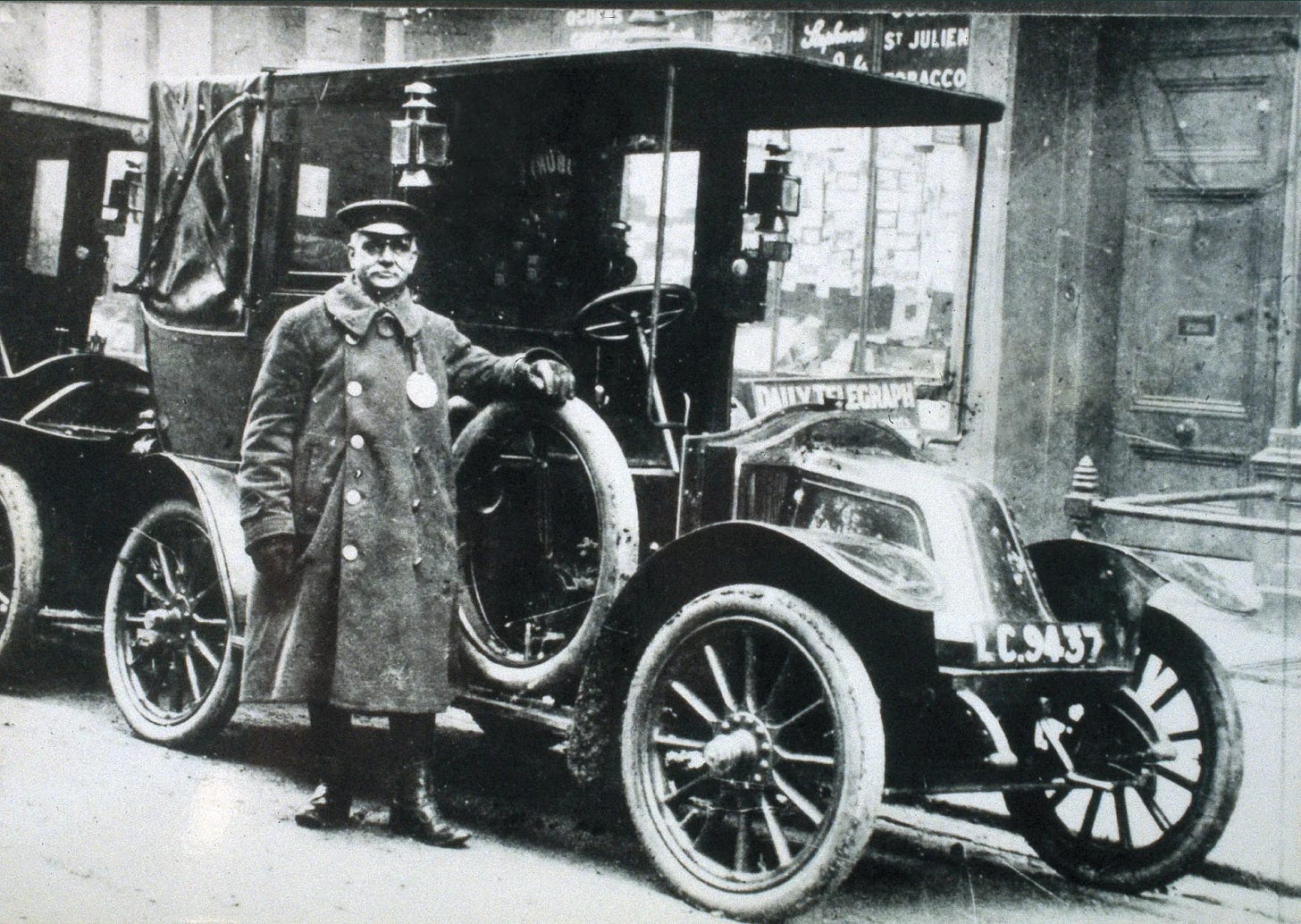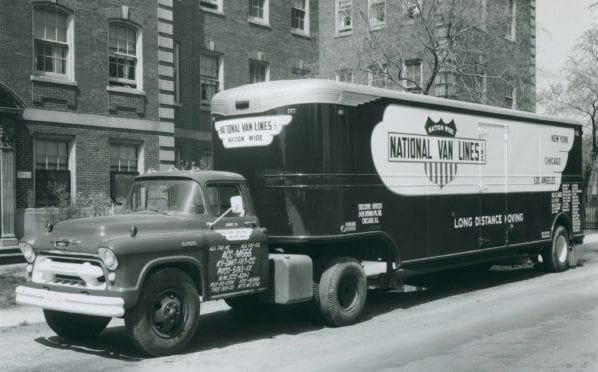The Endgame
Newsletter #81 - A cab at the door
Toronto, September 21, 2024
A cab at the door
The English writer V.S. Pritchett (1900-1997), known as “VSP,” had an unstable childhood. His father, “a Yorkshire Christian Scientist fantasist and bull-shitter,” had trouble making a living and frequently needed to dodge creditors. There was often “a cab at the door”(the title of a poignant memoir by VSP) to take the Pritchetts surreptitiously to new lodgings. By one count, the family moved eighteen times in twelve years. VSP later admitted that he enjoyed the excitement of it all. He said that moving a lot when he was a child gave him a love of travel. He became an accomplished travel writer.
I’ve moved a lot myself, particularly during the first half of my life, for a variety of reasons, some good, some not so good. My father never had to dodge creditors, but he was a restless man, always thinking there might be something better around the corner, or across the sea, or across the country, and moving his family accordingly. In 1954, when I was ten years old, we emigrated from Britain to Canada. An immigrant feels a degree of displacement in his new home, always and forever.
When I lived with my parents, if I tot it up, I inhabited seven houses in twenty years. In the two decades after I left home, I lived in eleven houses or apartments as I pursued my elusive fortune. That’s eighteen separate addresses in four decades, enough to make me something of a vagabond. The housing statistics for the second forty years of my life are less impressive—just five separate residences. (I may have forgotten a place or two, and I’ve passed over a short stay here or there, e.g., a summer in London in a sordid flat over an antique store.)
Particularly in North America, people seem to always be on the move, although there is little hard data on how many people change their residence and how often. Trucks full of furniture and bric-à-brac criss-cross the continent day and night, going hither and yon, from old homes to new, who knows where. According to the U.S. Census Bureau, the average American moves approximately twelve times in their lifetime. The average Canadian moves less, about seven times.
In a Newsletter last December (#49 – “The hound that came a stranger to us”) I reflected a little on the idea of home, and mentioned a book by Frances Stonor Saunders, The Suitcase: Six Attempts to Cross a Border. Saunders tells the story of her family, constantly on the move, starting as the world churned in the 1940s. She tells of her father, then a child. “He soon grew tired of asking... ‘Are we nearly there yet?’ ... He learned that everything was temporary, that home was a ‘for now’ place, the place where your suitcase was...” There was never a suitcase at the ready in the many places where I lived (never “the half-packed suitcase in the next room”) but frequent moves made it hard to cling to the comforting and stabilizing notion of home.
My daughter and her family have lived in the same house for twenty-four years. Her two children, both still living at home, have gone to the same neighbourhood schools that my daughter herself attended when she was a child. I look upon this stability with great satisfaction, that this generation has stayed in one place much to its benefit.
I hope I’m through moving. I want to be like my daughter. I like where I live and want to stay put. I don’t want a cab at my door anymore.
*****
Some reader comments on Newsletter #80 (“How should we be?”)
An interesting opinion from a UK reader: “Many of us are also pondering Sir Keir’s downbeat ‘strategy’ on this side of the pond too. Leaving aside one’s political leanings for a moment, there’s a thesis waiting to unfold here, for students of leadership studies… One view: by all means lower expectations, but be careful not to dig a bunker too big to climb out of. Keir can’t remain negative forever. Another view: leadership ultimately must be tied to a positive vision. As Blair said, the pilot needs to remain upbeat whatever he might see through the cockpit window! Rather than giving himself a get-out, Keir is actually in danger of displaying a weakness he will struggle to shake off. You would think nobody would want more Johnsonian bluster at times like this but ironically, some still do! Keir needs to hit the middle ground if he’s to lead us to the promised land.. If he doesn’t give us a more positive vision of a better future we won’t follow him through the sticky period, long enough for him to get us unstuck! Your friend though, is right, nothing good will come from abject negativity. Ever.”
One reader writes: “Not sure I would find in myself the strength and optimism of your friend Janet. My biggest fear is precisely to end up with, and have to endure a severe illness or handicap as she does. I confess my vanity and cowardice.”
From David Wolinsky: “Just another way of saying ‘Better to light a candle than curse the darkness,’ a saying credited to many from Confucius to Eleanor Roosevelt but most likely originated with W.L.Watkinson, a 19th century English preacher who may have had an interest in a candle factory.”
From my severest critic: “Your reading is a tad mordant. But if you want me to look at the bloody whale I will. Begrudgingly.”
And finally, more on George Orwell from the man who took me to Eric Blair’s grave (see Newsletter #79):
*****
A quotation from a book I am currently reading (an occasional bonus feature of The Endgame)
From Wellness: A novel, by Nathan Hill:
"The trick, she knew, was being able to live more fully in your imagination. To reduce the mental gap between you and the person you would soon become. To tell a story about the future that was more compelling than the present, which was something Elizabeth seemed to have a special knack for. It was one of her superpowers. ... [I]t was also her basic disposition while growing up, moving from place to place, school to school, starting over constantly, friendless once again, lonely, it had become an essential skill just to get by, just to endure. Elizabeth needed to invent stories about herself and her future that were more bearable than her present, more hopeful than her past, and in the meantime simply wait and wait and wait."





“A Cab at the Door” was Pritchett’s detailed account of his semi-impoverished, bounced-about Edwardian childhood, and the means for survival he devised while he was in the toils of a dramatizing, self-destructive floorwalker-and-salesman father, whose repeated scruffy business failures and the family’s furtive decampings explain the book’s title.
“I remember Pritchett, at dinner one night, telling us that no one had been invited to a meal at his house when he was a boy; and that if someone rang the doorbell unexpectedly at mealtime his mother would keep the visitor waiting outside until every crumb and vestige of the meal had been hurriedly swept off the table.
“There was something shameful or sexual about being caught eating,” he said. “I never understood it.”
-Roger Angell
Lots of good thoughts here (as usual). And thanks for the link to Bob Rae's talk on Orwell. When he was Premier of Ontario, he sent around a note to the public service (or those of us who did policy at least) directing us to read "Politics and the English Language", to clarify our thinking and our writing (the latter not being possible without the former.)
While he was still in opposition in Ontario, he once described a press release about a policy I had been involved in developing as "Humphreyesque bafflegab" (the reference to Yes, Minister being very clear at the time). I don't think it was entirely fair, but it was definitely effective rhetoric - though certainly not what is now called Orwellian. (The legislation passed and was duly ignored...)